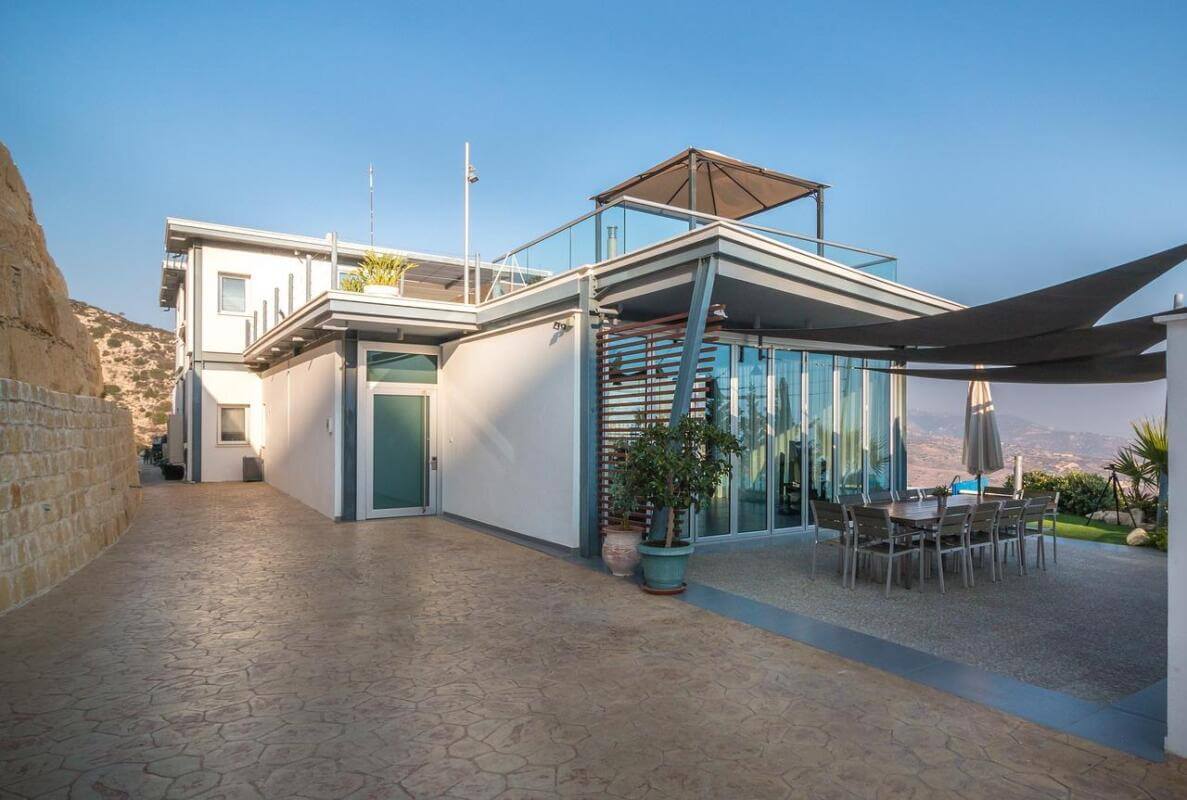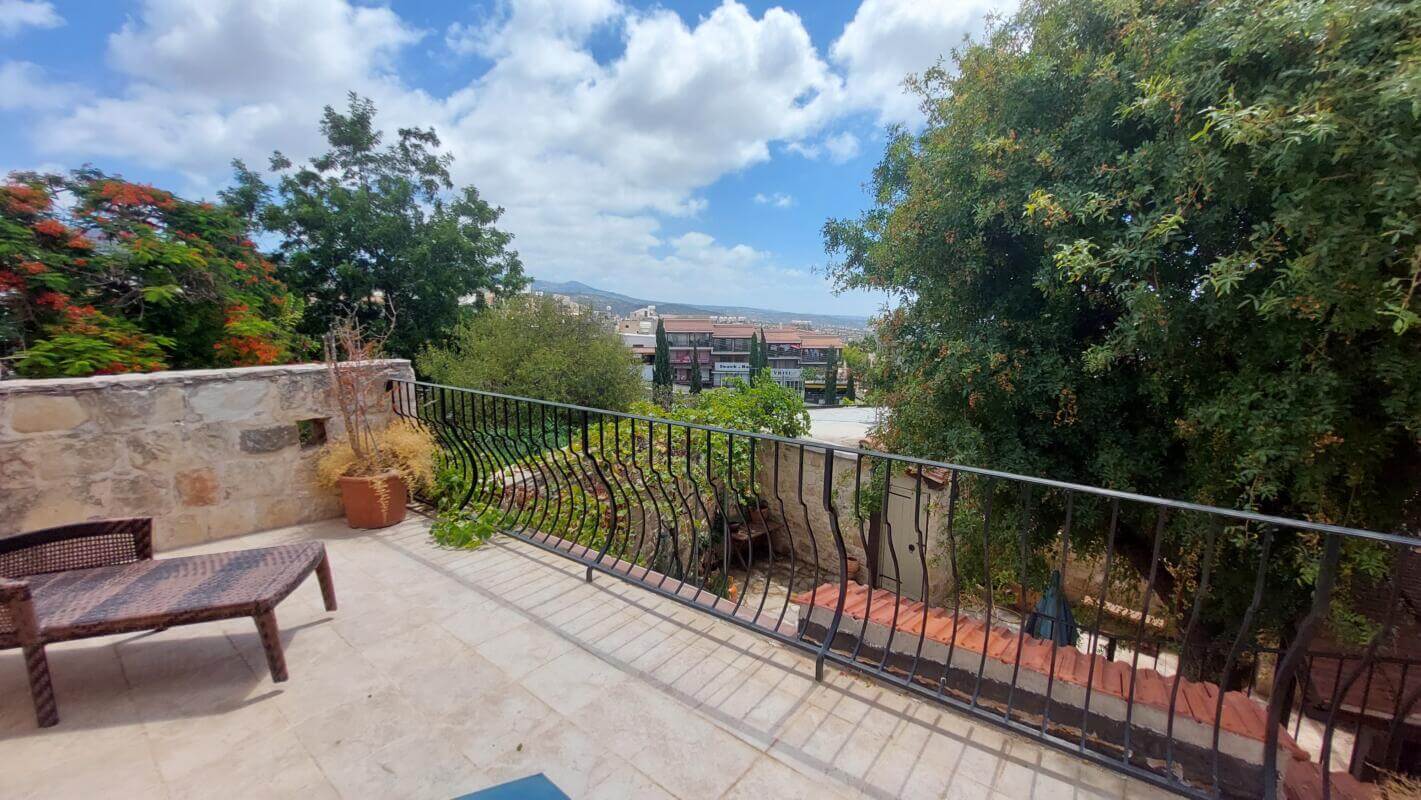Last Updated on 30/08/2025
Whether you’re dreaming of a Mediterranean lifestyle or scouting your next smart investment, buying property in Cyprus can be a great move — but understanding the local tax system is absolutely essential before you sign any contract.
Cyprus has made significant strides in recent years to simplify its property tax environment. With major levies like the Immovable Property Tax now abolished, the country has become increasingly attractive to foreign buyers. However, there are still several important taxes and fees that every property buyer and seller must navigate — including VAT, stamp duty, capital gains tax, and transfer fees.
This guide explains everything in clear, plain English. We’ll break down exactly what you’ll pay (and when), show you how much to budget, and walk through the latest updates as of 2025 — including practical examples and key exemptions you might qualify for.
Whether you’re relocating, investing, or planning for the future, here’s what you need to know about property tax in Cyprus.
1. Overview: Cyprus Property Tax Landscape in 2025
Cyprus has positioned itself as a low-tax, property-friendly destination — and for good reason. In 2017, the government officially abolished the annual Immovable Property Tax (IPT), removing one of the most burdensome recurring costs for property owners. Even before that, Inheritance Tax was eliminated in 2000, making Cyprus one of the few EU countries with zero tax on estate transfers.
So, what does that mean for you as a buyer or investor?
✅ There is no annual national property tax in Cyprus
✅ Inheritance tax is 0% — you can pass on property to your children without tax penalties
✅ Most of the current property-related taxes are transactional, not recurring
But that doesn’t mean taxes are completely off the table.
As of 2025, the most relevant taxes and fees include:
Stamp Duty – Paid when signing the property purchase contract
VAT – Applies only to new properties sold for the first time
Transfer Fees – Paid to register the title deed in your name
Capital Gains Tax (CGT) – Paid by the seller upon resale of the property
Municipal/Local Taxes – Small annual fees charged by local councils
Together, these taxes determine your total cost of buying, owning, or selling property in Cyprus. But the good news? With the right planning and professional guidance, many buyers — especially first-time home owners and permanent residents — qualify for tax reductions or exemptions.
Up next: what you’ll pay in stamp duty, when, and how much.
2. Stamp Duty on Property Purchases in Cyprus
💰 2025 Stamp Duty Rates
Cyprus applies a sliding scale based on the declared purchase price of the property:
0% on the first €5,000
0.15% on the portion from €5,001 to €170,000
0.20% on the portion above €170,000
The maximum stamp duty payable on any single contract is €20,000, even on high-value luxury purchases.
Stamp duty is often the first tax you’ll encounter when purchasing property in Cyprus. It’s a legal requirement for registering your sales agreement with the Cyprus Tax Department — and without it, your contract cannot be officially recognized by the Land Registry.
The good news? Stamp duty in Cyprus is relatively low, and there’s a clear tiered system for how it’s calculated.
🧮 Example: Buying a €250,000 Property
Let’s say you’re purchasing a home for €250,000. Here’s how your stamp duty is calculated:
First €5,000 = €0
Next €165,000 (from €5,001 to €170,000) × 0.15% = €247.50
Remaining €80,000 (above €170,000) × 0.20% = €160.00
Total Stamp Duty = €407.50
This amount is paid directly to the Inland Revenue Department and must be completed within 30 days of signing the purchase contract.
📝 Who Pays Stamp Duty and When?
Buyer pays the stamp duty
Payment is due within 30 days of contract signing
Without it, you can’t register the contract — which could delay or jeopardize your property rights
🚫 Exemptions & Special Cases
Some property transfers are exempt from stamp duty, including:
Gifts between first-degree relatives (e.g., parent to child)
Property transferred via inheritance
Some company restructurings or share transfers involving real estate
It’s wise to consult a property lawyer in Cyprus to check if your transaction qualifies for any special treatment.
3. VAT on New Properties in Cyprus
If you’re buying a brand-new property in Cyprus — especially from a developer — one of the biggest financial considerations is Value Added Tax (VAT). Unlike stamp duty, which applies to all purchases, VAT only affects certain types of properties.
The rules are straightforward but important, and in many cases, the difference between paying 19% VAT or 5% VAT could amount to tens of thousands of euros.
🏗️ When Does VAT Apply?
VAT is charged only on new residential properties sold for the first time
This includes off-plan homes or recently completed units that have never been occupied
Resale properties (previously owned) are exempt from VAT — but subject to transfer fees
📈 Standard VAT Rate in 2025
The standard VAT rate in Cyprus is 19%
It is applied to the full purchase price of the property
For example, a €300,000 new home would include €57,000 VAT
💡 Reduced 5% VAT for Primary Residences
Cyprus offers a generous incentive for buyers who plan to live in the property long-term. You may be eligible for a reduced VAT rate of 5%, but only under specific conditions:
✅ To qualify for 5% VAT:
Buyer must be a natural person (not a company)
The property will be used as the main and permanent residence for at least 10 years
Cyprus has revised its VAT scheme for first homes. A reduced 5% VAT is granted on the first 130 m².
Space from 131 to 190 m² is charged at the normal 19% rate. For properties larger than 190 m², the whole area is taxed at 19%.
The reduced rate applies only up to €350,000 of the property’s price. For properties valued between €350,001 and €475,000, the 5% VAT is allowed only on the first €350,000, and only up to 190 m².
Buyers cannot benefit if they already received a reduced VAT certificate in the past 10 years.
People with disabilities can claim the reduced rate for up to 190 m².
Projects submitted before October 2023 remain under the previous rules.
19%
🔁 New vs Resale Properties: Quick Comparison
| Property Type | VAT | Transfer Fees |
|---|---|---|
| New Build | ✅ Yes | ❌ No |
| Resale (Used) | ❌ No | ✅ Yes |
In some cases, VAT can replace transfer fees, which helps balance overall costs. For example, if you pay VAT on a new property, you are exempt from paying transfer fees at the Land Registry.
⚠️ Important Reminders:
You must apply for the 5% VAT rate before delivery
If you sell the property or stop using it as your main residence within 10 years, the difference (19% – 5%) may become payable
4. Property Transfer Fees (Cyprus Land Registry)
When you buy a property in Cyprus, one of the final — and most important — steps is transferring legal ownership into your name. This is done through the Cyprus Land Registry, and it comes with a cost known as transfer fees.
These fees are separate from VAT or stamp duty and are based on the market value of the property at the time of transfer.
🏛️ What Are Transfer Fees?
Charged by the Cyprus Land Registry Office
Paid when the title deed is officially transferred to the new owner
Based on the assessed value (not necessarily the purchase price)
Typically paid by the buyer
💸 Standard Transfer Fee Rates
Cyprus uses a tiered fee system for individual buyers:
3% on the first €85,000
5% on the next €85,000 (i.e., €85,001–€170,000)
8% on any amount above €170,000
🧮 Example: Buying a €250,000 resale home
First €85,000 × 3% = €2,550
Next €85,000 × 5% = €4,250
Remaining €80,000 × 8% = €6,400
Total = €13,200
🟢 50% Discount on All Transfers
Cyprus currently offers a 50% reduction on these rates for most property transactions.
Using the example above, you’d only pay:
€13,200 ÷ 2 = €6,600
This makes Cyprus one of the more affordable countries in Europe when it comes to transfer costs.
🚫 VAT = No Transfer Fees
If you’re buying a new property and paying VAT (either 19% or 5%), you are exempt from paying transfer fees entirely.
This exemption is designed to avoid double taxation and is a major cost-saver for buyers of new homes.
📅 When and How Are Transfer Fees Paid?
Due on the day of title transfer
Paid at the Land Registry office
Must be completed before ownership is officially registered
🔍 Who Determines Property Value?
The Land Registry conducts an official valuation based on market data. If the declared purchase price seems too low, they may assign a higher assessed value, which could increase your fee.
💡 Tip: If you’re buying a resale property, ask for a pre-transfer valuation to estimate your total costs accuratel
5. Local Authority Taxes & Municipal Fees
Even though Cyprus no longer charges an annual national property tax, property owners still need to budget for local taxes — also known as municipal or community fees.
These annual charges are relatively low but essential. They help fund key local services like garbage collection, sewage, lighting, and road maintenance — the everyday infrastructure that keeps your neighborhood functioning.
🏡 What Do Local Taxes Cover?
Each municipality or village council in Cyprus sets its own rates, but the taxes generally cover:
Sewage and waste management
Street lighting and cleaning
Public area maintenance
Environmental and health services
These services vary slightly depending on whether the property is in a municipality, village, or tourist zone.
💶 Typical Costs for 2025
For standard residential homes, here’s what you can expect to pay annually:
€90 to €300 for most apartments and houses
Higher fees for luxury villas, commercial properties, or properties with large plots
The exact amount often depends on:
Size of the property (covered area in square meters)
Assessed value based on 1980 valuation index
Type of ownership (individual or corporate)
📬 How Are Local Taxes Paid?
Local authority taxes are usually billed once per year. Payment options include:
Online portals (municipality website)
In-person at the local town hall
Authorized banks or kiosks
⚠️ Important: If you’re buying a resale property, make sure there are no outstanding local dues. These debts follow the property, not the previous owner.
🏢 Extra Fees in Gated or Shared Properties
If your property is part of a complex, gated community, or apartment building, you may also be subject to:
Communal maintenance fees
Management company charges
Pool, garden, or lift servicing fees
These are not government taxes but should still be factored into your ongoing property budget.
🧠 Quick Tip: Always ask the seller or real estate agent for a full breakdown of local and communal charges during the due diligence phase.
6. Capital Gains Tax (CGT) on Property Sales in Cyprus
If you’re planning to sell your property in Cyprus in the future, it’s important to understand Capital Gains Tax (CGT). While buyers don’t need to worry about this, sellers are subject to a flat tax on any profit made from the sale — but with generous exemptions available, especially for residents.
💰 What Is Capital Gains Tax (CGT)?
CGT is charged on the net profit from selling property in Cyprus. The tax is calculated as the difference between:
Your original purchase price (plus certain allowable expenses)
And the sale price of the property
Only the gain — not the full sale value — is taxed.

A flat 20% is applied to taxable profits
The seller is responsible for calculating, declaring, and paying CGT to the Cyprus Tax Department
📉 Allowable Deductions
You can reduce your taxable gain by deducting:
Original purchase price of the property
Stamp duty and transfer fees paid at the time of purchase
Legal, architectural, and agent fees
Capital improvements (e.g., renovations, extensions)
Inflation adjustment over the holding period
These deductions can significantly lower your CGT bill — especially for long-term property owners.
🛡️ Lifetime Exemptions
Cyprus offers several personal lifetime CGT exemptions to both residents and citizens:
| Type of Exemption | Amount |
|---|---|
| General exemption (applies once) | €17,086 |
| Main residence (owned 5+ years) | €85,430 |
| Agricultural land (under strict rules) | €25,629 |
Only one exemption may be used per transaction, and each can only be claimed once in a lifetime.
📅 When and How Is CGT Paid?
CGT is payable upon filing the property sale with the Tax Department
The seller must submit all supporting documentation (invoices, title deed, exemption claim, etc.)
It is usually handled by your lawyer or tax consultant
💡 Special Notes for Foreign Investors
Foreign nationals are fully eligible for deductions and exemptions
Tax is only applied to gains on Cyprus-based property
Holding property as a company may affect the CGT treatment — get legal advice early
💬 Tip: Keep all receipts and official records related to your property purchase and upgrades — they can help you save thousands when it’s time to sell.
7. Other Costs & Taxes to Be Aware Of
While VAT, stamp duty, transfer fees, and CGT are the main taxes involved in Cyprus property transactions, there are a few smaller costs and charges that often catch buyers and sellers by surprise. They might not be as large, but they still deserve a place in your budget.
📜 Power of Attorney (PoA) Stamp Duty
If you can’t be in Cyprus to sign documents yourself, you may grant Power of Attorney to a lawyer or trusted representative.
General PoA: €6 stamp duty
Specific (limited) PoA: €2 stamp duty
One-time payment, made at the Tax Department
📄 Title Deed and Registration Fees
Even after paying transfer fees, you may incur small administrative charges at the Land Registry, such as:
Lodging contracts
Issuing certified copies
Updating ownership records
💶 Usually between €5 and €50 per service.
⚖️ Legal and Professional Fees
Lawyers typically charge around 1% of the purchase price (flat fee or percentage)
Real estate agents may charge up to 5% + VAT (paid by the seller unless otherwise agreed)
Surveyors and notaries may also have separate fees
🏠 Property Insurance
Not a legal requirement, but highly recommended — and often mandatory if you have a mortgage.
Costs vary based on size, location, and coverage
Expect to pay €150–€500 per year
Can cover fire, flood, earthquake, theft, and liability
🏢 Communal Charges
If your property is part of a shared development, expect ongoing fees for:
Pool and garden maintenance
Security services
Lift repairs
Shared area cleaning
These vary widely — from €50/month for small blocks to €200+/month for luxury complexes.
💡 Tip: Always request a written breakdown of these extra costs before committing to a property. Over time, they can add up and affect your return on investment.
8. Tax Comparison Table: Buyer vs Seller Obligations
To make things clearer, here’s a side-by-side look at which taxes and fees are typically paid by the buyer and which are the seller’s responsibility when dealing with property in Cyprus.
| Tax / Fee | Buyer Pays? | Seller Pays? | Notes & Special Conditions |
|---|---|---|---|
| Stamp Duty | ✅ Yes | ❌ No | Paid within 30 days of signing purchase contract |
| VAT (new property) | ✅ Yes | ❌ No | Only applies to first sale properties; reduced 5% rate available for main residences |
| Transfer Fees | ✅ Yes | ❌ No | Based on Land Registry’s assessed value; exempt if VAT is paid |
| Capital Gains Tax | ❌ No | ✅ Yes | Flat 20% rate; deductions and lifetime exemptions available |
| Municipal Taxes | ✅ Yes | ❌ No | Annual fee for waste, lighting, and other local services |
| Power of Attorney Stamp Duty | ✅ Yes (if needed) | ❌ No | €2–€6 depending on type |
| Land Registry Admin Fees | ✅ Yes | ❌ No | Usually €5–€50 |
| Legal Fees | ✅ Yes | ✅ Yes | Each party pays their own legal costs |
| Real Estate Agent Fees | ❌ No (usually) | ✅ Yes (usually) | Typically up to 5% + VAT; negotiable |
| Property Insurance | ✅ Yes | ❌ No | Often required by mortgage lenders |
💡 Quick Insight:
Buyers typically face more upfront costs (stamp duty, VAT, transfer fees)
Sellers pay fewer taxes, but CGT can be significant if there’s a large profit
Smart planning can minimize total taxes for both parties
9. FAQs – Cyprus Property Tax Explained
No. The Immovable Property Tax (IPT) was abolished in 2017. However, you still need to pay local municipal taxes each year for services like waste collection and street lighting.
No. VAT only applies to brand-new properties sold for the first time.
New property → VAT applies (19% standard or 5% reduced rate for main residence)
Resale property → No VAT, but transfer fees apply.
To qualify for the reduced 5% VAT rate, you must:
Be an individual buyer
Use the property as your main home for at least 10 years
Apply formally to the Cyprus Tax Department
Only the first 200 m² of covered space qualifies for 5% VAT; the rest is taxed at 19%
Transfer fees are paid on the day the title deed is transferred into your name at the Land Registry. If VAT is charged on your purchase, you don’t pay transfer fees.
The seller pays CGT when selling a property at a profit. The rate is 20% on the net gain, but there are deductions and lifetime exemptions that can reduce the amount significantly.
No. Tax rates and rules are the same for both residents and non-residents.
No. Inheritance Tax was abolished in 2000. However, heirs must still register the property at the Land Registry and pay any small administrative fees.
The buyer pays stamp duty within 30 days of signing the purchase contract. Rates are tiered (0%, 0.15%, and 0.20%), with a maximum of €20,000 per transaction.
10. Final Tips for Property Buyers in Cyprus
Buying property in Cyprus can be an exciting step — whether you’re chasing the Mediterranean lifestyle, planning a retirement move, or securing an investment. But as with any major purchase, knowing the tax landscape ahead of time will save you stress, money, and potential legal headaches.
Here are a few practical tips to keep your purchase smooth and cost-efficient:
✅ Factor in All Costs Upfront
Don’t just look at the purchase price — add stamp duty, VAT (if applicable), transfer fees, local taxes, legal fees, and insurance into your budget. That way, there are no unpleasant surprises at closing.
✅ Check for Outstanding Local Taxes
If buying a resale property, ensure the seller has paid all municipal dues. These debts transfer with the property, meaning you could be liable if they’re unpaid.
✅ Understand VAT Rules Early
If you qualify for the 5% VAT rate on a main residence, apply before finalizing the deal. This could save you thousands — but only if done on time.
✅ Keep Every Receipt and Document
From legal fees to renovation invoices, keeping detailed records can reduce your Capital Gains Tax later on when you sell.
✅ Hire Local Experts
Work with a licensed lawyer, tax consultant, and real estate agent who understand Cyprus property law. Their fees are small compared to the cost of making a costly tax mistake.
✅ Verify Title Deeds
Before paying a deposit, confirm that the property has a clean title deed. This ensures you can legally transfer ownership and avoid bureaucratic delays.
💡 Bottom line: Cyprus is one of the most tax-friendly places in Europe for property buyers, but understanding each fee — and how to legally minimize it — is the key to buying smart.
11. Glossary of Terms
Stamp Duty – A one-time government tax paid when signing a property purchase contract. Rates in Cyprus range from 0% to 0.20%, capped at €20,000.
Value Added Tax (VAT) – A sales tax applied to new properties. Standard rate is 19%, with a reduced 5% rate available for qualifying main residences on the first 200 m².
Transfer Fees – Fees paid to the Cyprus Land Registry to officially transfer the title deed into the buyer’s name. Calculated on a tiered percentage of the property’s assessed value, with a 50% discount in most cases.
Capital Gains Tax (CGT) – A flat 20% tax on profit made from selling a property. Reduced by allowable deductions and lifetime exemptions. Paid by the seller.
Municipal Tax – Annual local taxes charged by the municipality or village council for services like waste collection, street lighting, and public maintenance.
Power of Attorney (PoA) – A legal document allowing someone to act on your behalf in a property transaction. Requires small stamp duty when registered.
Title Deed – The official legal document proving property ownership in Cyprus. Essential for completing a property transfer.
Communal Fees – Regular payments by owners in shared developments (apartments, gated communities) for upkeep of shared facilities and services.
About Keynote Assets Ltd
Keynote Assets Ltd helps European clients purchase and manage property in Cyprus. We coordinate financing, legal support, and long-term management to maximize your investment.
Why Choose Us?
European Expertise: Tailored solutions for clients across the EU and the UK.
Personalized Service: Property options matched to your budget and goals.
Comprehensive Support: From initial consultation to closing and ongoing management.
How It Works
Consultation Call – We assess your needs, budget, and timeline.
Property Selection – You receive curated property options.
Site Visit – Visit shortlisted properties in Cyprus.
Finalize Purchase – We handle contracts, payments, and compliance.
Ongoing Management – We take care of rentals, maintenance, and returns.
KEYNOTE ASSETS LTD – להשקעה בטוחה ואמינה
חברת KEYNOTE ASSETS LTD הוקמה ב 2017 בקפריסין על ידי דוקטור נעם ואליס שני, מנהלים בכירים לשעבר בתחומי הביוטכנולוגיה והשיווק.
החברה הינה בעלת נכסים מניבים רבים באזור העיר פאפוס ופאייה (דירות להשכרה ווילות נופש).
בשנת 2021 הקמנו קרן נדל”ן אירופאית פרטית שרכשה כבר עשרות רבות של נכסים להשכרה בפאפוס.
אנו מלווים ומייעצים למשקיעים ישראלים ואירופאים המעוניינים לרכוש נכסים להשקעה ולמגורים או נופש באזור פאפוס, קפריסין. יש לנו את מגוון הנכסים הגדול והאיכותי ביותר במערב האי ובאזורי הביקוש!
מוכנים להשקיע בקפריסין ללא כאבי ראש, בזבוז זמן וסטרט? עם Keynote Assets תקבלו תמיכה מקצה לקצה, מבחירת הנכס ועד ניהול לאחר המכירה. הצוות המומחה שלנו מטפל בכל, ומבטיח מסע השקעה חלק ורווחי ללא סיכונים. אל תתנו להזדמנויות לחמוק – צרו איתנו קשר היום לייעוץ אישי בכל תקציב.
לפרטים נוספים לחצו >>>כאן<<<
להתחלת צ’ט לחצו >>>כאן<<<




